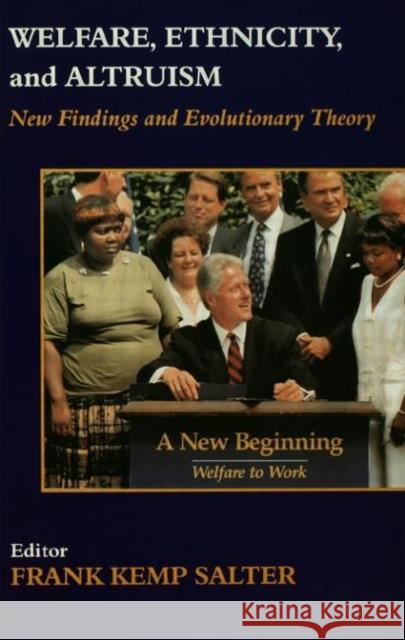Welfare, Ethnicity and Altruism : New Data and Evolutionary Theory » książka
Welfare, Ethnicity and Altruism : New Data and Evolutionary Theory
ISBN-13: 9780714654270 / Angielski / Twarda / 2004 / 341 str.
Welfare, Ethnicity and Altruism : New Data and Evolutionary Theory
ISBN-13: 9780714654270 / Angielski / Twarda / 2004 / 341 str.
(netto: 741,76 VAT: 5%)
Najniższa cena z 30 dni: 705,23
ok. 16-18 dni roboczych.
Darmowa dostawa!
Welfare, Ethnicity, and Altruism applies the controversial theory of 'Ethnic Nepotism', first formulated by Irenaus Eibl-Eibesfeldt and Pierre van den Berghe, to the modern welfare state (both are authors in this volume). This theory states that ethnic groups resemble large families whose members are prone to cooperate due to 'kin altruism'. Recent empirical findings in economics and political science offer confirmatory evidence. The book presents two separate studies that compare welfare expenditures around the world, both indicating that the more ethnically mixed a population becomes, the greater is its resistance to redistributive policies. A study of donations to the United Way of America charity finds that White Americans give less when their communities are more than 10 per cent non-White. Still another study, based on observations of giving to street beggars in Moscow, finds an ethnic-nepotistic effect. In a fascinating twist, cohesive regional ethnic groups such as the francophones of Quebec can sometimes leverage additional welfare from the central government. On a related theme, a global survey finds that the most generous foreign aid comes from the most homogeneous count











